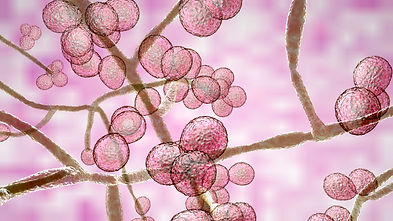
The Hypothesis
We hypothesize that Candida overgrowth is a root cause of several poorly understood syndromes and inflammatory diseases. The acetaldehyde subhypothesis posits that the accumulation of acetaldehyde, a byproduct of the fermentation of sugar by Candida albicans, could explain the fatigue and the brain fog observed in these syndromes. The interleukin-17 subhypothesis posits that the release of proinflammatory cytokines interleukin-17, as a reaction of the host to the overgrowth of Candida, is a root cause of several inflammatory diseases.

The Challenge
Laurent Hermoye, CEO of the #CandidaChallenge, will offer $10,000 to the first medical researcher who can prove that the Hypothesis is wrong. See the Challenge page and our Terms & Conditions to learn more.

Not for Patients
This website is intended for the medical research community only, not for patients. Patients seeking medical advice, diagnosis, or treatment should consult directly with their healthcare providers, as the information provided here is not meant to substitute professional medical consultation or to offer specific guidance on personal health matters.

History
While the idea of "chronic candidiasis" has faced skepticism in the past, we acknowledge that history and build on contemporary research on the mycobiota to address previous limitations. The Hypothesis revisits the pioneering work of Dr. C. Orian Truss and Dr. William G. Crook from a modern scientific perspective, emphasizing the need for well-designed studies. As Dr. John E. Bennett noted in his New England Journal of Medicine editorial: “Even more damaging is the profession's apparent refusal to study chronic candidiasis”.
